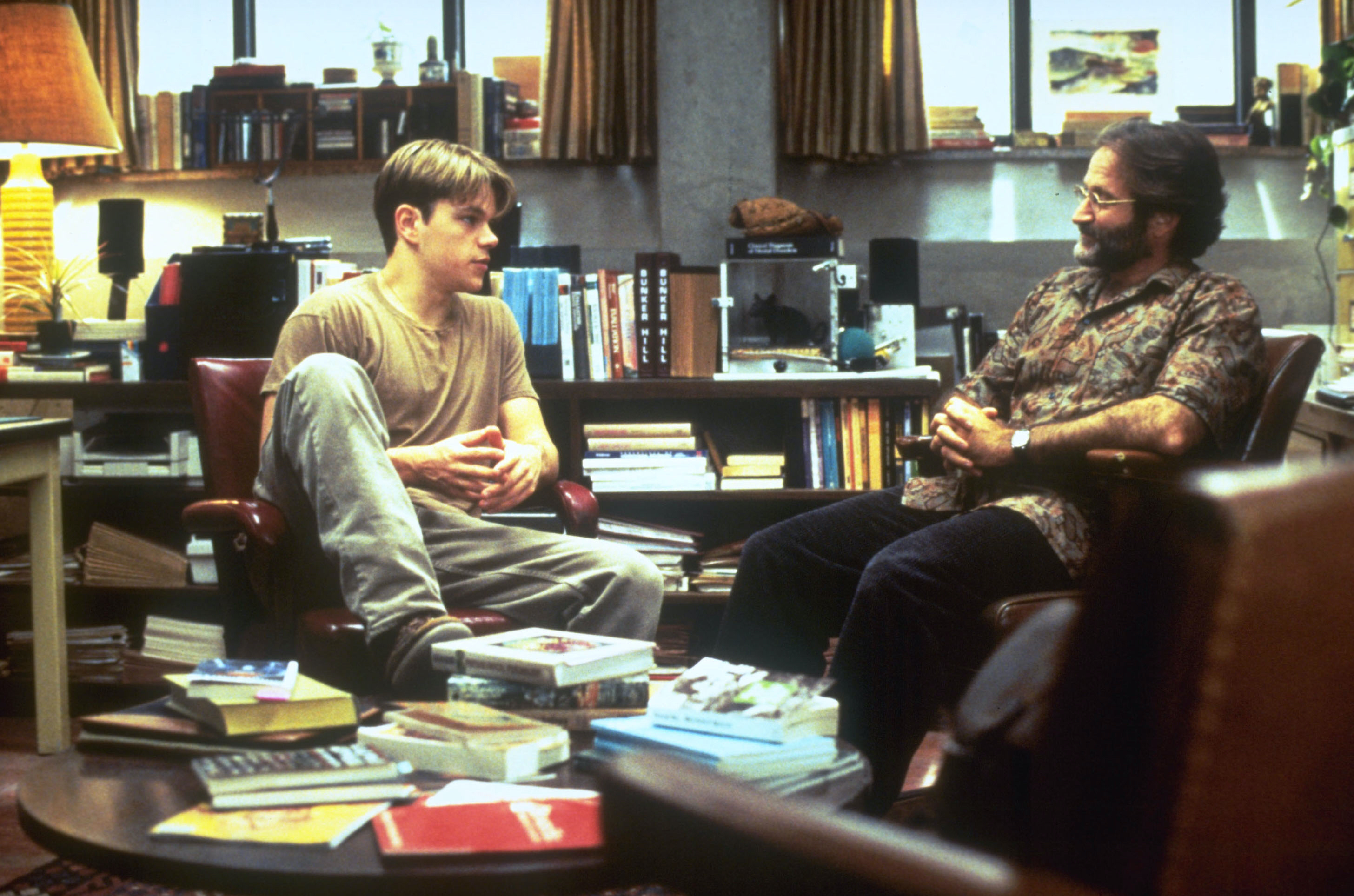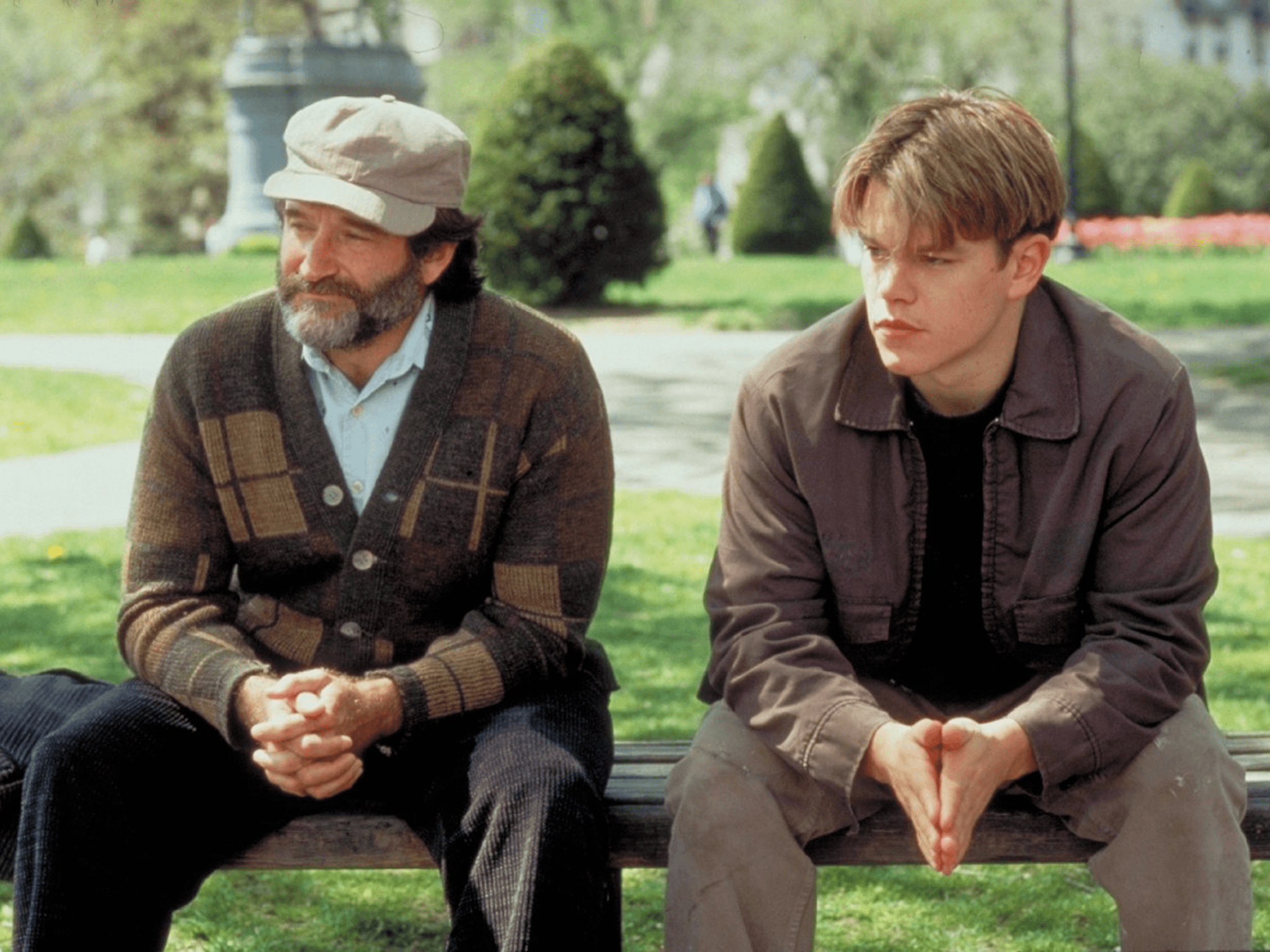**Imagine this: You're standing on the edge of a vast treasure map, armed with nothing but your wit, determination, and a name—Will Good.** Sounds like an adventure movie, right? But hold up, this isn't just about treasure hunting. It's about uncovering the hidden gems of legacy, inheritance, and the pursuit of something greater than ourselves. If you're curious about what hunting Will Good means and why it matters, buckle up because we're diving deep into this thrilling world. And don't worry, we'll keep it real, relatable, and packed with insights you won't find anywhere else.
Hunting Will Good is more than just a catchy phrase. It represents the pursuit of understanding someone's final wishes, their legacy, and the impact they leave behind. Whether you're dealing with legal matters, family disputes, or simply trying to honor a loved one's memory, this journey can be both challenging and rewarding. In today's fast-paced world, where digital footprints and complex legal systems dominate, knowing how to navigate the process is crucial.
So, why does this matter to you? Well, think about it. At some point in life, most of us will encounter situations where we need to deal with wills, estates, or inheritance. Whether you're the executor, a beneficiary, or just curious about the process, having a solid understanding of "hunting Will Good" can save you time, money, and headaches. Let's break it down step by step, shall we?
- Molly Yeh Net Worth A Deep Dive Into The Life Career And Financial Success Of This Talented Chef
- Amelia Vega The Multifaceted Star Who Conquered Hearts
What Exactly is Hunting Will Good?
Hunting Will Good refers to the process of locating, understanding, and executing a person's last will and testament. It's not just about finding a piece of paper; it's about honoring someone's final wishes and ensuring their legacy lives on. This journey can involve legal procedures, family discussions, and sometimes, a bit of detective work. But hey, who doesn't love a good mystery, right?
Here’s a quick breakdown of what hunting Will Good entails:
- Locating the original will document
- Understanding the contents and legal requirements
- Communicating with beneficiaries and stakeholders
- Executing the will according to legal guidelines
Think of it like a puzzle. Each piece represents a different aspect of the process, and putting them together requires patience, knowledge, and sometimes, a little creativity. But trust me, the satisfaction of completing the puzzle is worth it.
- Billie Joe Armstrong Net Worth The Untold Story Of Green Days Frontman
- What Does Gop Mean Unlocking The Meaning Behind The Acronym
Why Is Hunting Will Good Important?
In a world where emotions run high during times of loss, having a clear plan is essential. Hunting Will Good ensures that the deceased's wishes are respected and followed. It also helps prevent conflicts among family members and avoids unnecessary legal battles. Let's face it, nobody wants to spend their grieving period in court, arguing over assets.
Here are some key reasons why hunting Will Good is so important:
- It provides clarity and direction during uncertain times
- It helps maintain family harmony
- It ensures that assets are distributed fairly and legally
- It honors the deceased's legacy and intentions
And let's not forget, it's a way to show respect and gratitude to someone who has entrusted you with their final wishes. Whether you're dealing with a small estate or a multi-million-dollar inheritance, the principles remain the same.
How to Start Hunting Will Good
Alright, so you've decided to embark on this journey. Where do you begin? First things first, gather all the necessary information. This includes knowing the deceased's personal details, their financial assets, and any known documents related to their will. Here's a simple guide to get you started:
Step 1: Locate the Will
The first step in hunting Will Good is finding the actual document. This might sound straightforward, but trust me, it can get tricky. Start by checking the deceased's personal belongings, such as safes, filing cabinets, or even digital storage. If you can't find it there, consider reaching out to their attorney or estate planner. They often keep copies of important legal documents.
Step 2: Understand the Contents
Once you've located the will, take the time to read and understand its contents. Pay attention to the beneficiaries, executors, and any specific instructions. If anything seems unclear, don't hesitate to consult a legal professional. Remember, clarity is key in this process.
Step 3: Communicate with Stakeholders
After understanding the will, it's time to communicate with the beneficiaries and other stakeholders. This step is crucial in maintaining transparency and avoiding misunderstandings. Schedule a meeting, share the contents of the will, and address any questions or concerns they might have.
Common Challenges in Hunting Will Good
Let's be real for a second. Hunting Will Good isn't always a smooth ride. There are challenges along the way, and it's important to be prepared for them. Here are some common obstacles you might encounter:
- Missing or incomplete documents
- Disputes among beneficiaries
- Legal complications or outdated laws
- Emotional stress and family dynamics
But don't worry. With the right mindset and resources, you can overcome these hurdles. Stay calm, stay focused, and remember that you're doing this for a greater purpose.
Legal Aspects of Hunting Will Good
Now, let's talk about the legal side of things. Hunting Will Good involves navigating complex legal systems, and it's essential to understand the basics. Here are some key points to keep in mind:
Probate Process
The probate process is essentially the legal validation of a will. It ensures that the document is authentic and that the executor has the authority to carry out the deceased's wishes. Depending on the jurisdiction, this process can vary in complexity and duration.
Executor Responsibilities
As the executor, you have several responsibilities, including:
- Managing the estate's assets
- Paying off debts and taxes
- Distributing assets to beneficiaries
- Maintaining accurate records and documentation
It's a big role, but it's also a rewarding one. Just remember to stay organized and seek legal advice when needed.
Tools and Resources for Hunting Will Good
Thankfully, there are plenty of tools and resources available to make your journey smoother. Here are a few you might find helpful:
- Online legal platforms for document management
- Financial software for asset tracking
- Legal consultation services for expert advice
- Support groups for emotional guidance
Don't be afraid to leverage these resources. They can save you a lot of time and effort, allowing you to focus on what truly matters.
Case Studies: Real-Life Examples of Hunting Will Good
To give you a better understanding of the process, let's look at a couple of real-life examples:
Case Study 1: The Family Heirloom
In this scenario, a family discovers a will that bequeaths a valuable heirloom to one of the siblings. However, other family members feel entitled to it as well. Through open communication and legal guidance, they manage to resolve the issue amicably.
Case Study 2: The Lost Will
Here, a family struggles to locate the original will document. After consulting with a lawyer, they manage to reconstruct the will based on available evidence and witness testimonies. This highlights the importance of having a backup plan.
Future Trends in Hunting Will Good
As technology continues to evolve, so does the way we handle wills and estates. Digital wills, blockchain-based inheritance systems, and AI-driven legal assistance are just a few examples of what the future holds. These innovations promise to make the process faster, more secure, and more efficient.
But with great power comes great responsibility. It's crucial to stay informed and adapt to these changes while maintaining the integrity and authenticity of the process.
Conclusion: Your Journey Starts Here
Hunting Will Good is more than just a process; it's a journey of discovery, respect, and legacy. Whether you're dealing with a simple will or a complex estate, the principles remain the same. Stay informed, stay organized, and most importantly, stay true to the deceased's wishes.
So, what's next? Take action! Start by educating yourself on the basics, gather the necessary resources, and don't hesitate to seek help when needed. And remember, the world of legacy pursuit is vast and full of possibilities. You've got this!
Oh, and before you go, drop a comment below or share this article with someone who might find it helpful. Together, let's make the process of hunting Will Good a little easier for everyone.
Table of Contents
- What Exactly is Hunting Will Good?
- Why Is Hunting Will Good Important?
- How to Start Hunting Will Good
- Step 1: Locate the Will
- Step 2: Understand the Contents
- Step 3: Communicate with Stakeholders
- Common Challenges in Hunting Will Good
- Legal Aspects of Hunting Will Good
- Probate Process
- Executor Responsibilities
- Tools and Resources for Hunting Will Good
- Case Studies: Real-Life Examples of Hunting Will Good
- Case Study 1: The Family Heirloom
- Case Study 2: The Lost Will
- Future Trends in Hunting Will Good
- Conclusion: Your Journey Starts Here


